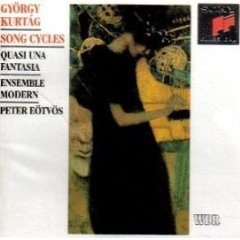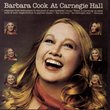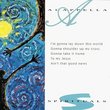| All Artists: Christine Whittlesey, Ensemble Modern Title: György Kurtág: Song Cycles (Messages of the Late Miss R.V Troussova, Op. 17; Scenes from a Novel, Op. 19) / ...Quasi una Fantasia..., Op. 27 - Ensemble Modern / Peter Eötvös Members Wishing: 0 Total Copies: 0 Label: Sony Release Date: 9/21/1993 Genres: Pop, Classical Styles: Vocal Pop, Opera & Classical Vocal, Chamber Music Number of Discs: 1 SwapaCD Credits: 1 UPC: 074645329024 |
Search - Christine Whittlesey, Ensemble Modern :: György Kurtág: Song Cycles (Messages of the Late Miss R.V Troussova, Op. 17; Scenes from a Novel, Op. 19) / ...Quasi una Fantasia..., Op. 27 - Ensemble Modern / Peter Eötvös
CD DetailsSimilar CDs
|
CD ReviewsI prefer the Csengery performance of the soprano works, but Christopher Culver | 12/12/2006 (4 out of 5 stars) "Gyorgy Kurtag is a modern master of the musical miniature. How short can his pieces get? This 55-minute disc, containing three works, is split into forty tracks, leading to the frequent depiction of the composer as Bartok compressed to Webern-like conciseness. Kurtag's music was known only to a few fellow Hungarians before he finally came onto the international scene twenty-five years ago, with his popularity really skyrocketing in the last fifteen. This Sony disc, released in 1993, is one of the first major-label recordings of his works. Peter Eotvos conducts the Ensemble Modern.
Two substantial vocal works have the spotlight. "Messages of the Late R.V. Trussova" op. 17, a setting of twenty-poems of Rimma Dalos for soprano and ensemble. When performed in Paris by the Ensemble Intercontemporain and Csengery conducted by Pierre Boulez in 1981, it finally brought Kurtag fame abroad. It's easy to see why the piece was so instantly likeable. Rimma Dalos, a Russian poet living in Hungary, writes in a tone as charming as a schoolgirl's, but with profound references to a woman's inner self. Dalos' sequence of little poems ranges from white-heat ("Loneliness") to burlesque (in the section "A Little Erotic") and Kurtag's music accompanies the text perfectly. Unfortunately, this performance is somewhat disappointing. The soprano Rosemary Hardy doesn't have the same grace as Adrienne Csengery in the Hungaroton recording. And Ensemble Modern performs the music in oddly detached and jaded fashion compared to the Budapest Chamber Ensemble in that same recording. In fact, that brings up a complication with Kurtag's music: the composer is so insistent on guiding players through a performance that any recording not supervised by Kurtag himself risks departing from the composer's vision. The quality of the performance gets better with "Scenes from a novel" op 19. is another setting of Dalos poems, but for the much simpler ensemble of violin, double bass, and cimbalom. The texts are generally melancholy. Kurtag twice makes reference to other composers, with hommages to Alfred Schnittke, Gustav Mahler, and Laszlo Kalmar. The central instrument accompanying the soprano is cimbalom, which lends a very exotic sheen to the music, and performed here by legendary instrumentalist Marta Fabian. The soprano here is Christine Whittlesey, who has just the balance of coquetry and shame that the piece demands. A wonderful surprise for me was "...quasi una fantasia..." op. 27 for piano and instrument groups, a concerto that shows immense range in its mere eight-minute breadth. The first movement starts the music off with the slowest, simplest soundss at a restrained dynamic. In the second, there's a furious cascade of pointillistic piano, alluding to Beethoven's Hammerklavier (and Boulez's Second Piano Sonata?). In the third, thundering percussion and harsh brass swallows up the piano completely. But in the fourth, the piano shows himself victorious, playing tones reminiscent of Part's tintinnabuli, with the most fragile and sympathetic orchestral accompaniment. It's one of the most elegant and inspiring dramatic arcs since Schnnitke's first cello concerto. It's a pity that this disc is now difficult to find. If you come across it for cheap, it is very much worth getting for the piano concerto and "Scenes from a Novel". At least one can still hear the vocal works on a widely distributed Hungaroton disc ("Works for soprano"), which has the benefit of being supervised by Kurtag himself." |


 Track Listings (40) - Disc #1
Track Listings (40) - Disc #1
